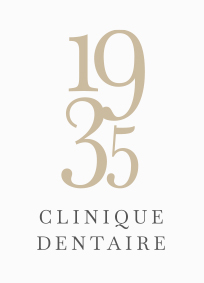Have you ever heard of dental plaque?
Plaque is a thin, sticky film that accumulates naturally on our teeth. The film contains bacteria that can lead to multiple oral health issues if it isn’t properly cleaned away. Potential oral health problems include a gum disease called gingivitis.
In this article, our dentists provide an overview of gingivitis and explain how it can be prevented and treated.
What is gingivitis?
Gingivitis is a gum disease primarily caused by plaque buildup on your teeth. The bacteria found in dental plaque contains toxins that can lead to gum irritation and inflammation.
In advanced cases, the toxins can cause bleeding and a more severe form of gum disease, called periodontitis, that spreads to the underlying tissue and bone. It’s important to see your dentist no more than a week after gingivitis symptoms first appear so that the disease can be reversed before it progresses further.
It’s best to take good care of your gums and teeth to prevent gingivitis from occurring in the first place.
What are the main causes of gum disease?
While it is not the only risk factor, smoking can have grave consequences for your teeth. It irritates the gums, which can cause or aggravate gingivitis. We recommend quitting smoking as a gingivitis prevention strategy.
Drinking alcohol and taking certain types of medication can also be contributing factors for gingivitis. Age can also play a major role in your likelihood of developing the disease. The older we get, the greater our risk of gum inflammation becomes.
All of that being said, the number one risk factor for gingivitis and other types of gum disease is poor oral hygiene.
How to prevent and treat gingivitis at home
To prevent and treat gingivitis at home, it’s essential to maintain a diligent dental cleaning routine. Good oral hygiene is the best way to prevent plaque buildup.
Here is an example of an effective routine for preventing gingivitis and treating mild cases at home.
Brush your teeth properly and regularly
You have probably been hearing this since you were a child, but brushing your teeth at least twice a day is essential to remove plaque.
That being said, brushing them thoroughly for ten seconds is not enough. Here is how to brush your teeth properly:
- Brush your teeth for at least 2 minutes to remove as much dental plaque as possible. Avoid pressing too hard, as that can cause damage.
- Hold your toothbrush at a 45° angle, making small, circular motions over the entire inner, outer and chewing surfaces of your teeth.
- Make sure to clean your gum line, since it is the area most at risk for plaque buildup.
Use the right toothpaste
It’s not always easy to choose the right toothpaste, particularly if your risk of gum disease is elevated. If you’re at risk for gingivitis, you may want to consider using antibacterial toothpaste. This type of toothpaste can combat bacteria for hours at a time, even overnight.
Use mouthwash
In addition to the appropriate toothpaste, you can also use an antibacterial mouthwash to take care of plaque that is lodged in hard-to-reach places. Plaque and tartar tend to harbour bacteria, which can inflame the gums.
For more information, contact your Montreal dentist to find out which mouthwash they recommend for gingivitis.
Floss daily
It’s also important to floss daily, preferably at night. Flossing will help you remove any tenacious plaque residue that your toothbrush and mouthwash missed.
Visit your dentist for effective gingivitis treatment
As you can see, having a regular and diligent dental hygiene routine will help you prevent plaque and avoid gingivitis.
Of course, small amounts of plaque can build up despite our best efforts and pose a threat of gingivitis. That’s why it’s important to see your dentist at least once or twice a year to get professional dental care.
Trust the experienced dentists at Clinique Dentaire 1935 to take care of your oral health. Contact us today to make an appointment.
